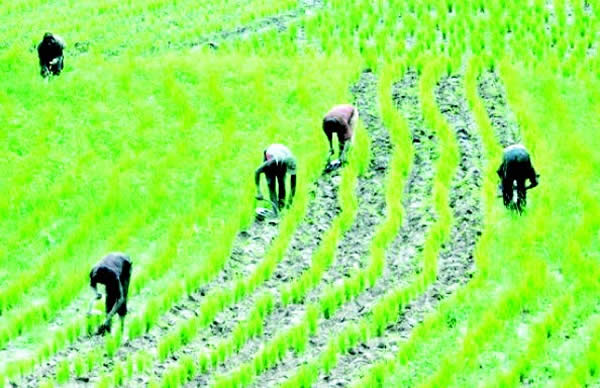FG to empower 500,000 rice farmers – AFAN

The price of rice in Nigeria is set to decrease as the Federal Government steps up its efforts to support local farmers, particularly those engaged in rice production.
In an exclusive interview with our correspondent, the President of the All Farmers Association of Nigeria, Kabir Ibrahim, disclosed that the National Agricultural Growth Scheme – Agro Pocket project is expected to empower 500,000 farmers starting in February 2025.
This intervention, he assured, would provide comprehensive support to the farmers and contribute to ramping up rice production, which has faced challenges in recent years.
“There is a NAGS-AP project going on. It’s going to start in February. It’s going to capture 500,000 farmers with full support. So, and last year, something happened. It didn’t work. They didn’t do it on time. It will ramp this up,” Ibrahim explained.
The announcement comes amid rising concerns over the steep increase in food prices, especially rice.
In Abuja, the cost of a 50kg bag of rice has soared to no less than N110,000, a surge that has burdened households across the country.
This price hike is linked to a recent decline in Nigeria’s rice production, which fell to 8.3 million tonnes for the 2024/2025 cycle, down from 8.9 million tonnes in the previous year.
Despite government interventions to boost agricultural output, the decline in production has raised alarms about food security.
The PUNCH reported that data from the United States Department of Agriculture indicated a noticeable drop in milled rice production, a trend that has been evident since the 2023/2024 planting season.
The Permanent Secretary of the Federal Ministry of Agriculture and Food Security, Dr Marcus Ogunbiyi, in his comments about the government’s strategy to enhance food security said, “It is essential for us to inform Nigerians and the world about our efforts to achieve food and nutrition efficiency, thereby combating hunger, starvation, and malnutrition in the country.”
The Federal Government’s latest initiative, aimed at empowering 500,000 farmers, is part of a broader strategy to address these challenges.
The permanent secretary announced the launch of “Operation Empty the Store,” by the Federal Government, a project aimed at distributing agricultural equipment and inputs to farmers, including fertilizers, sprayers, and motorized weeders.
Ogunbiyi noted that this would ensure farmers receive the tools they need to boost productivity during the second phase of the 2024-2025 farming seasons.
The government has also been heavily investing in agriculture to reduce food insecurity.
In 2024, it spent N8.64bn towards improving food security through various initiatives.
This funding has gone towards acquiring essential farming equipment and materials, from tractors to fertilizers, and will continue in 2025 as the government seeks to expand support for farmers.
Despite these efforts, however, the country’s food inflation remains a major concern, currently at 39.93 per cent.
Rising transportation costs, partly driven by the removal of the fuel subsidy, have significantly increased the prices of food commodities.
The AFAN president pointed out that transportation costs were a key factor in the rising prices of food, urging the government to address fuel prices and invest more in infrastructure development.
“When farmers face high transportation costs, they have no choice but to increase prices to cover these expenses,” Ibrahim said.
The government’s push to empower farmers with essential tools and support is expected to positively impact rice production, bringing down the cost of rice and alleviating some of the financial burdens on consumers.
As more farmers receive the assistance they need to improve yields, it is hoped that Nigeria’s agricultural sector will recover from recent setbacks, stabilizing both food prices and food security across the nation.





